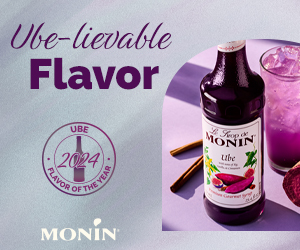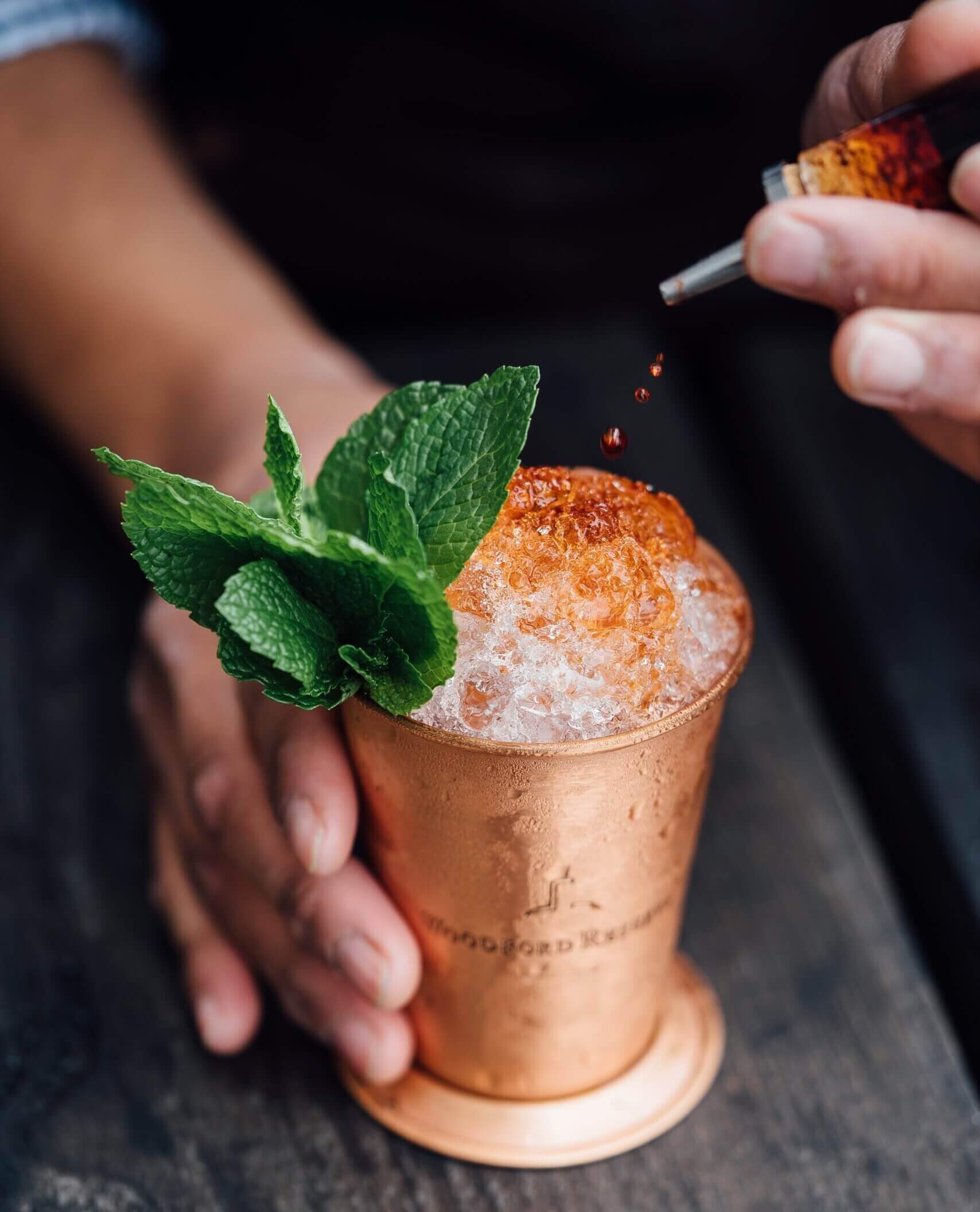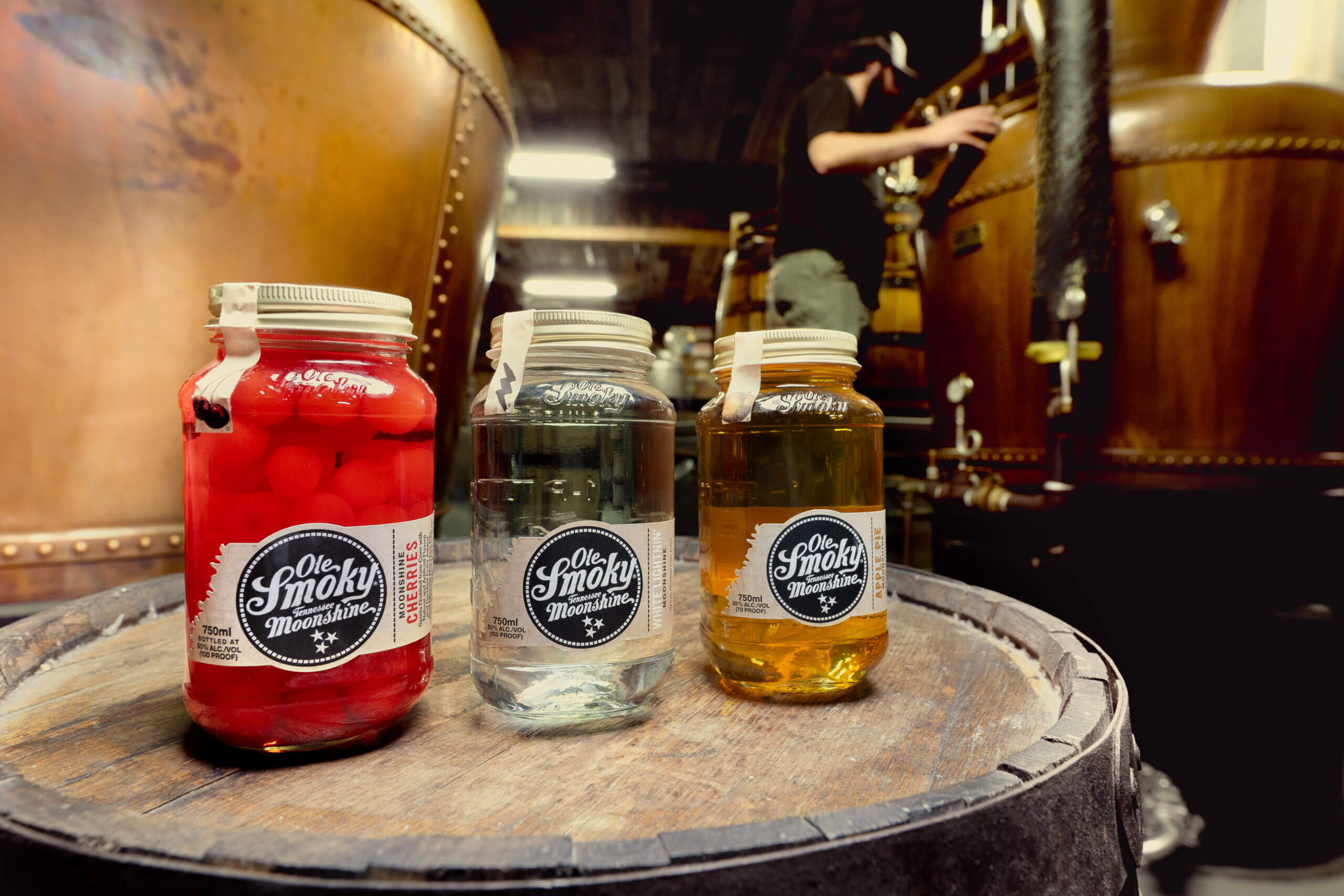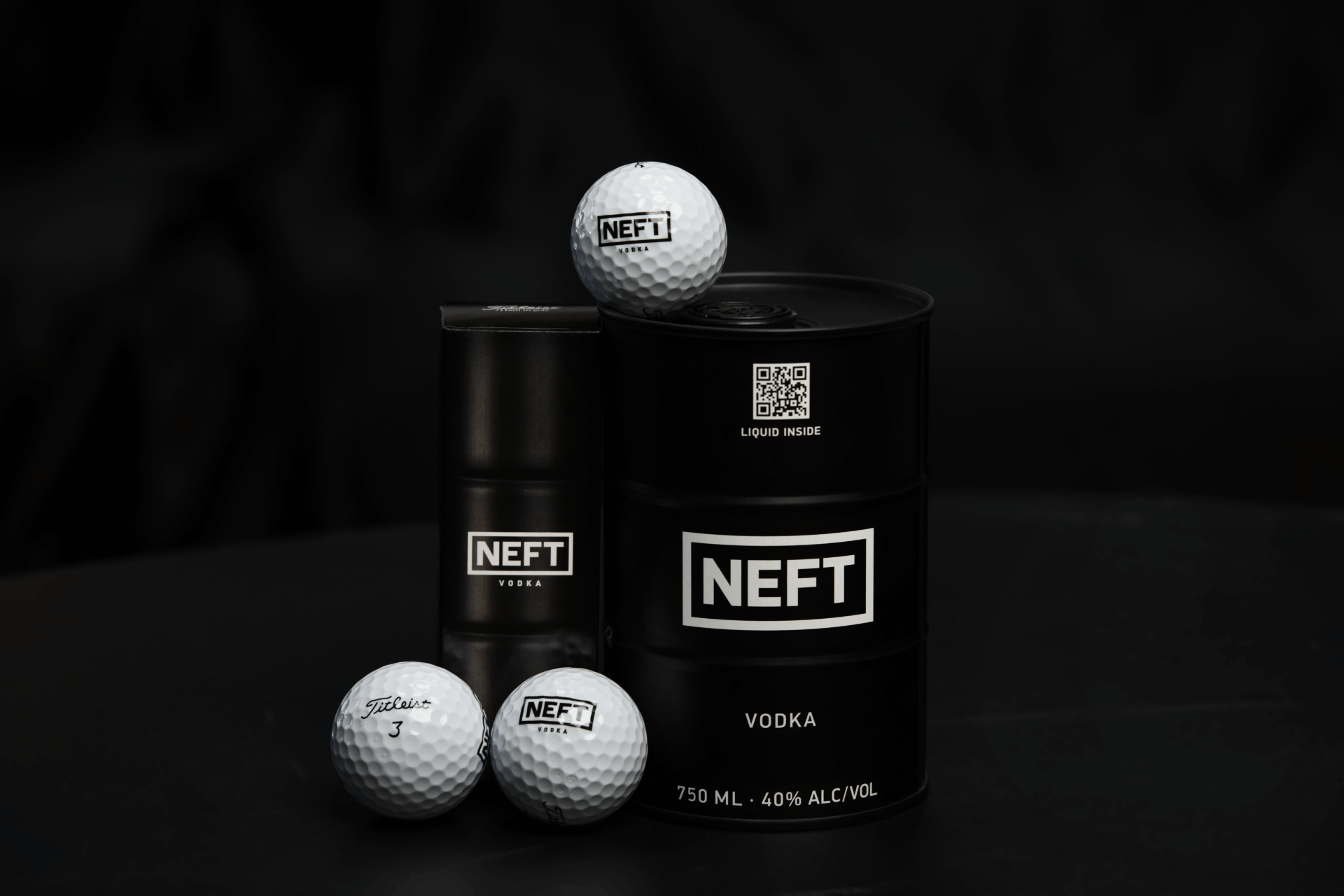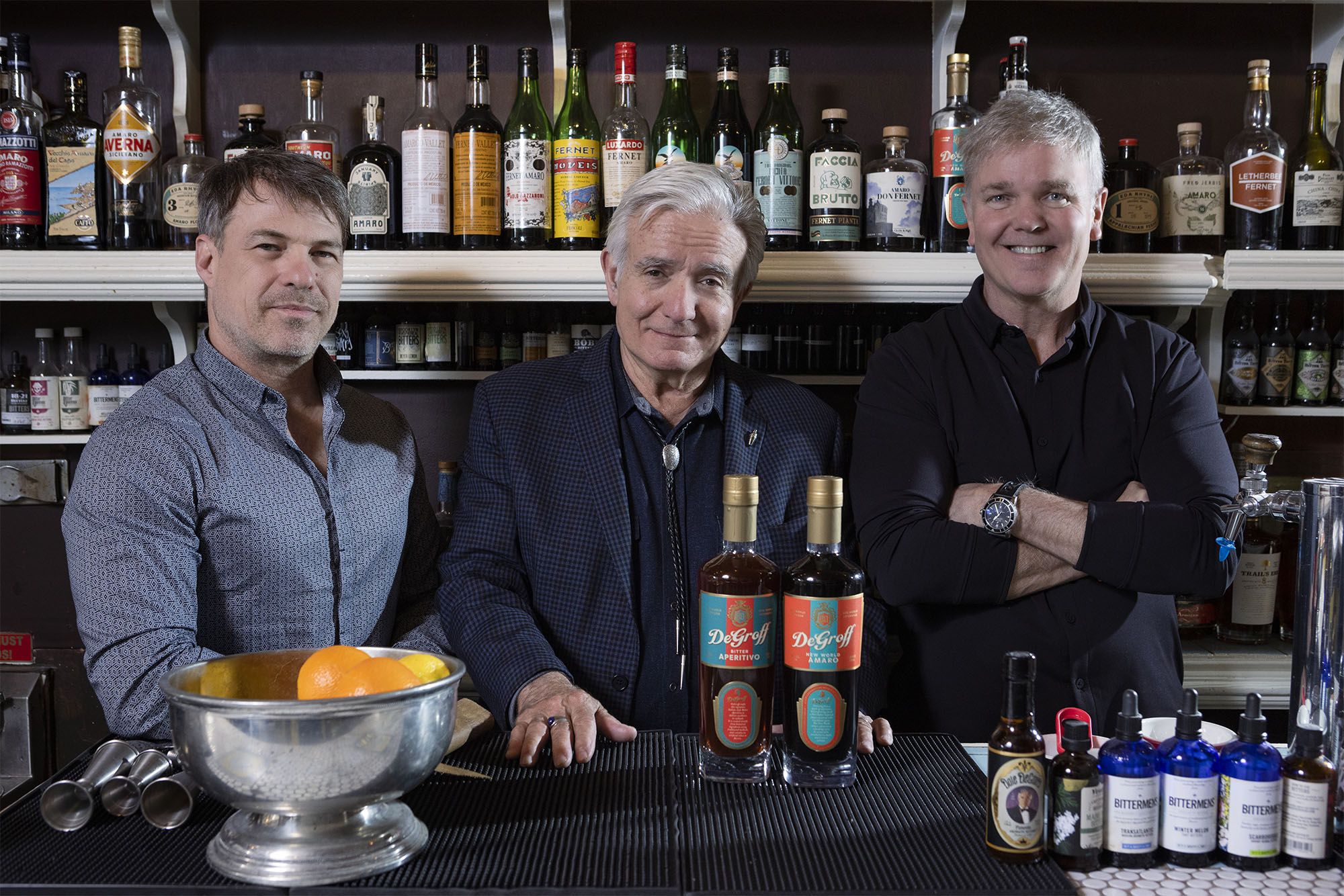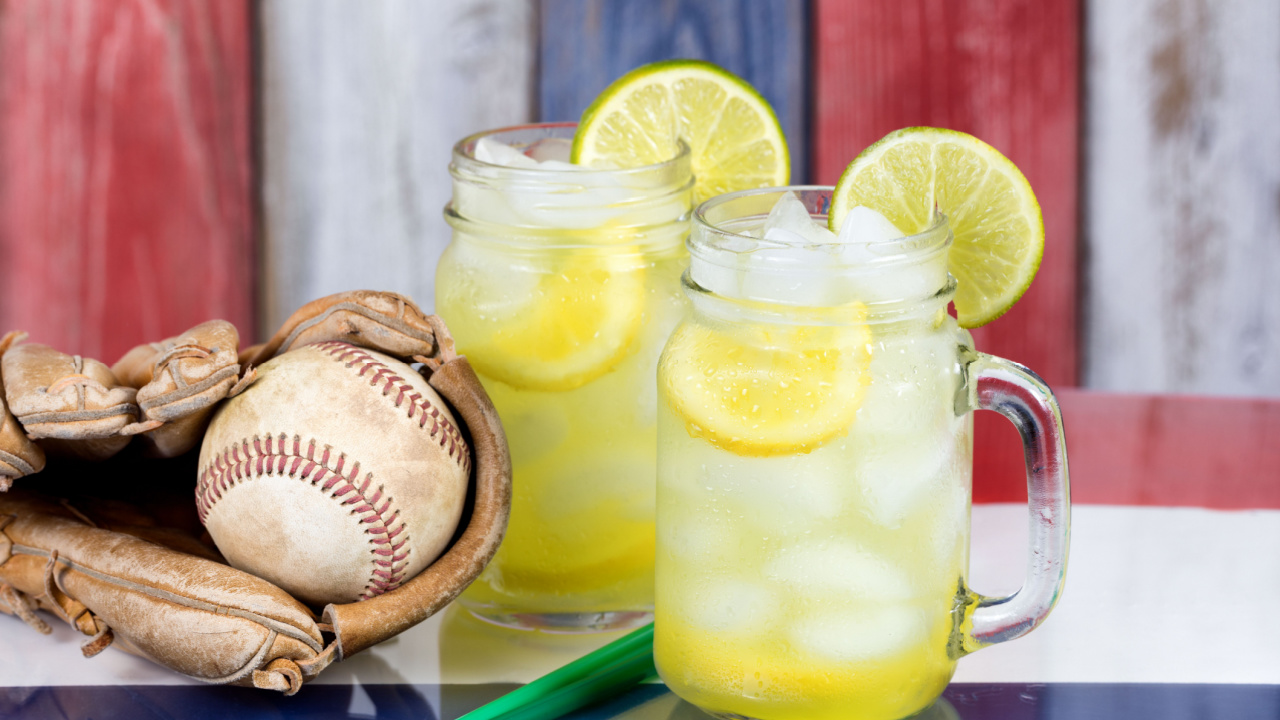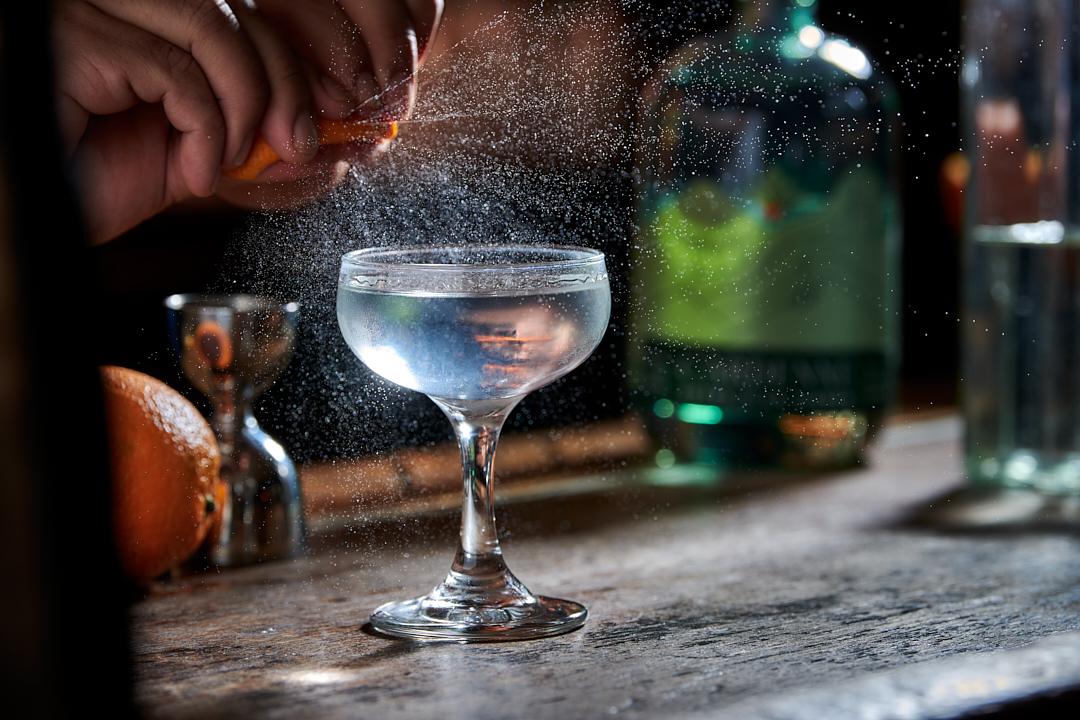DIY Bitters
By Chilled Magazine
The Manhattan wouldn’t be the same without them. The earliest versions of the Martini use them.
And today, the selections number in the hundreds. We’re talking about bitters, which can transform a cocktail’s profile with just one dash. Louis Anderman, owner of Miracle Mile Bitters, has been in the game since early in the spirits expansion.

Anderman Straining Ingredients
Today, his bitters can be found as far away as London and Japan. Anderman frequently offers classes in DIY bitters, spreading the aromatic gospel and letting people know that this isn’t rocket science, but it definitely takes patience and exactitude.
Anderman’s most important tip has to do with exact measuring, the inaccuracy thereof being the downfall of many a recipe. “One thing I insist upon for the recipe is that measurements be by weight, rather than volume,” he explains.

Anderman Grinding Spices
“My experience is that the herbs and spices will be cut differently from one vendor to the other,” he continues, “so a tablespoon from one place won’t even be remotely like the equivalent volume from another. Besides, I figure that if you’re crazy enough to make your own bitters, you can damn well spend $15 for a gram scale from Amazon.”
Buy it here.
The man is nothing if not opinionated, but that characteristic is part of what makes his bitters – with flavors like bergamot, yuzu, and chocolate/chili – so distinctive.
Here are a few more tips from Anderman about embarking on a bitters project.
- The higher the proof, the better. Bitters are made by extracting flavors from herbs, spices, flowers, etc. The typical “extraction base” is essentially a neutral grain spirit of some kind. Anderman suggests Everclear at 151 proof or a 100 proof vodka. Over proof rum works well too as the extracting liquid. You can also cut a more expensive dark spirit, like bourbon, with the much cheaper Everclear at a 50/50 split and you will still yield great results. Don’t even try making bitters with a proof lower than 100. Just as higher proof spirits deliver more flavor in cocktails, they draw out the flavors for bitters.
- Don’t be afraid to experiment. As Anderman says of the recipe below, “This recipe is great on its own as an aromatic bitters for Old Fashioneds, Manhattans, etc., but can also be used as a starting point for layering on other flavors. For example, I made a Thai-influenced bitters by substituting galangal for the ginger, adding dried coconut and pandan leaf to the base, and swapping palm sugar for the demerara.”
- Use a Salad Spinner. Because a lot of the ingredients used in bitters making retain moisture in the extraction process, i.e., hold their liquid, Anderman suggests that after you strain them from the bitters liquid, you run them through a salad spinner to gather up as much of the bitter liquid as possible.
- Filtering. In Anderman’s words, “When filtering the finished product, Chemex filters work much better at catching fine particulates than regular coffee filters. First, filter through a single filter, then through a double layer of filters. If you don’t have a Chemex carafe, Hario makes a coffee dripper that fits the filters perfectly.”

DIY Bitters
Miracle Mile DIY Aromatic Bitters
Courtesy of Louis Anderman, Miracle Mile Bitters
Ingredients:
- 1 Liter Neutral grain spirit (approx. 151 proof, such as Everclear)
- 12 grams (.43 oz.) Gentian
- 40 grams (1 1/2 oz.) Cinnamon
- 30 grams (1 oz.) Ginger
- 10 grams (.35 oz.) Cloves
- 12 grams (.43 oz.) Star anise
- 10 grams (.35 oz.) Allspice
- 4 grams (.14 oz.) Mace
- 16 grams (.56 oz.) Cardamom
- 8 oz. Demerara sugar, caramelized (see below)
- 8 oz. Water
Preparation: Weigh spices, crack cardamom pods and allspice berries, and combine with alcohol in glass jar. Rest two weeks at room temperature, shaking every few days. Or, if you have an immersion circulator, place jar in water bath and sous vide at 135° Fahrenheit for five hours, then let rest overnight. Strain solids from base. If desired, whiz through a salad spinner to extract as much liquid as possible. Add caramelized sugar syrup as below.
Caramelized Demerara Sugar: In a non-stick pan, melt sugar over medium heat to melt. Pour melted sugar onto a silpat mat or metal cake pan to harden. Break up sugar, then make a syrup by adding the sugar pieces to the water until combined. Cool. Add to base, let rest overnight, then filter. Ideally, use Chemex filters, first passing through a single filter, then a double layer.


